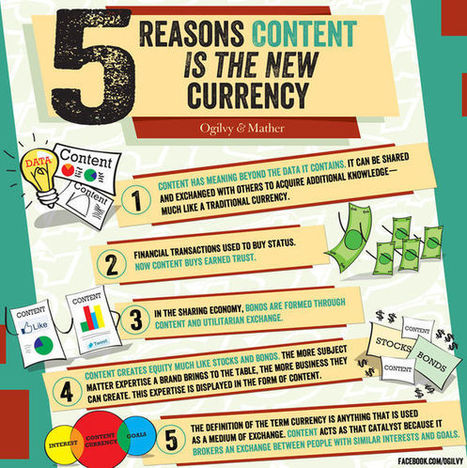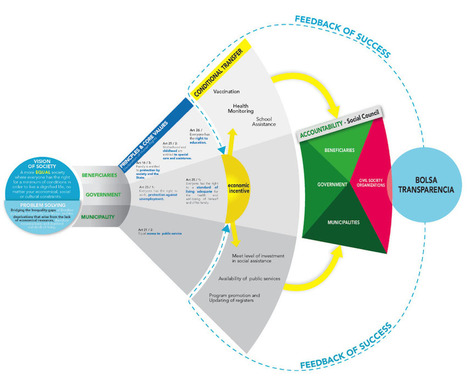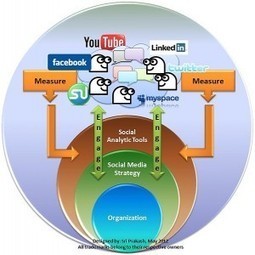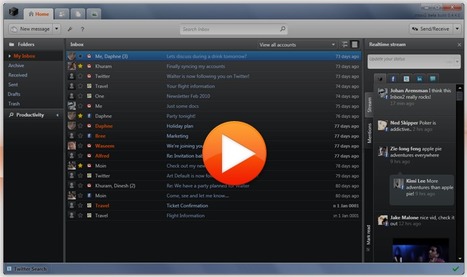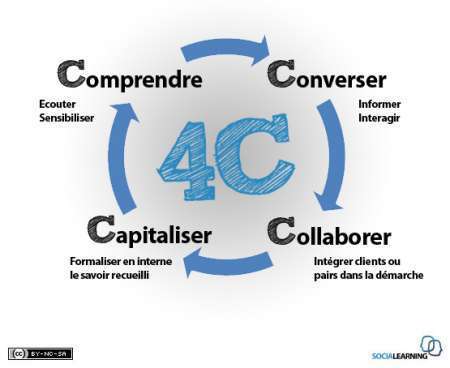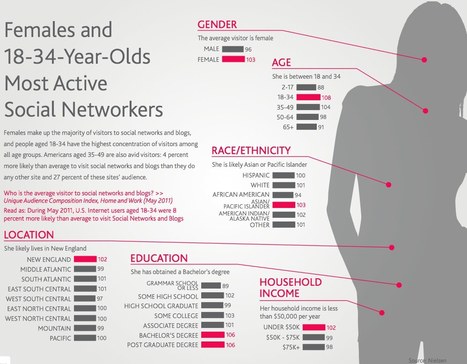 Your new post is loading...
 Your new post is loading...
Facebook va lancer Paper pour partager la presse CB News Facebook a dévoilé hier une nouvelle application baptisée « Paper », un journal en ligne dans lequel on peut consulter et partager des articles et d'autres contenus sur un smartphone, un peu un peu à la manière de Flipboard"
Why should you use Google+?There are lots of good reasons to pay attention to Google+, but for me it comes down to these three: Search is becoming socialGoogle+ Authorship is becoming a filter for quality contentGoogle+ has the best user experience of any social network
Visit the link to find additional insights, resource links, and useful Google+ information.
Via Lauren Moss, Martin (Marty) Smith
How often have you checked your social media accounts today? Feeling unplugged is a problem for many people. This infographic from mylife.com illustrates how people are addicted to social media, and what they rather do than give up their Internet lifeline. Two out of three people are afraid they’re missing something important on email, Facebook, Twitter, or other accounts. In the same survey, three out of five people wished there was a solution to monitor their various communication options. This infographic is based on the survey by Harris, and conveys a growing trend—social media overload...
Via Lauren Moss
Cet article vise à expliciter des astuces permettant d’alpaguer les internautes et de provoquer en eux une réaction que vous souhaitez : l’engagement. Comment ? En instaurant un effet domino inconscient.
Via Pascal STIEVENARD
GeoCommons delivers visual analytics through maps. We make it possible to view massive amounts of data, make decisions and solve problems with no prior training or experience using traditional mapping tools.
Via Natalie Sing
Pas de panique chez Twitter. Face aux sceptiques qui jugent difficile de rentabiliser son modèle, le site de micro-blogging reste fidèle à sa stratégie : faire croître son audience, qui dépasse déjà les 500 millions de membres, dont plus de 100 millions d'actifs, avant de penser à la monétisation du service.
Via Herve Perret
Bien que l'usage des médias sociaux reste relativement élevé, le public britannique devient davantage exigeant concernant ce type de services. --- "L'étude démontre (...) que les médias sociaux sont beaucoup plus compliqués à manipuler que ce que les marketeurs estimaient. En plus du désintérêt pour ces outils, les chercheurs constatent que ce genre de sites ne permet pas vraiment aux entreprises d'attirer une nouvelle clientèle, plutôt de fidéliser celle déjà existante. En effet, 44% des internautes estiment que le fait qu'un ami « aime » ou tweete un produit ne les inciterait pas spécialement à l'acheter, et 43% d'entre eux pensent peu probable qu'ils citent une marque sur les médias sociaux."
An innovative and pleasant way to discover and transform information to knowledge.
Everyday hundreds of millions of Internet users find, collect, manage and absorb information of any kind from different sources like web pages, videos, blogs, wikis, images, online books, documents and even online courses. Different kinds of information processing serve different needs or aspects of our lives. Just reading news, for example, serves our need to be informed about what happens around us. Whereas organizing, socialising and verifying information serves our intrinsic need to transform information to knowledge and understand better the world. Finally knowledge certification serves our need for social acknowledgement, a better job and a better life. Based on these facts there are two different needs. - First, users must be able to find or create, filter, collect and organize the best pieces of information related to a subject. The shelf life of information is now so short that knowing where to find information is sometimes more valuable than knowing any particular piece of information.
-Secondly, users need a flexible system to manage and efficiently use this information regarding its format (web site, blog, wiki, document, video, online course) and its purpose (informing, entertaining, learning, certificating).
It is clear that the fields of social networking, information management, online learning and knowledge sharing are converging rapidly. Because of this evolution we need a new and innovative approach which simulates the natural way we gather information and learn. An innovative platform wich has been built upon those principles, is now online. Learn more on http://www.schoox.com
Via Costas Vasiliou
Socialdex is a simple contact management App that helps you organize all the people in your social life.
Via Frédéric DEBAILLEUL
StumbleUpon shows us in this beautiful infographic how the life-cycle of a link is much higher than on any other social site including Facebook and Twitter . . .
On the surface, social media and knowledge management (KM) seem very similar. Both involve people using technology to access information. Both require individuals to create information intended for sharing. Both profess to support collaboration. ...
Great piece by Brian Solis who is one of my favorite people.....he never disappoints. This sums it up and it's profound - Facebook has the social graph and this hits all of us where we live: “Timeline is the story of your life,” said Mark Zuckerberg “All your stories, all your apps, express who you are.” For those who focus on the debate between Facebook, Google Plus and Twitter are missing the true story. Today at Facebook’s f8 developer conference we were reminded of the what the story really is, It's about you and me............ Excerpt: “For the first time ever in a single day we had 500 million people use Facebook” – Mark Zuckerberg No, it’s not about features, capabilities, or the number of users. Profound! We were reminded about the power of something much more important, our experiences, relationships, the content we create and share and how each paint a picture of who we are as individuals. Today Facebook introduced features for its users and developers alike that position Facebook not as a social network, but instead as a platform for storytelling and meaningful engagement. How is this different than the profile you’ve come to know over the years? The team at Facebook explains… Timeline is a new kind of profile, one that lets people tell their story in a visually-rich and artistic fashion. In addition to aesthetics, Timeline is essentially a social home page for all that moves you, from media to experiences to people. The biggest difference you’ll notice is presentation. Starting with the substantial image that you choose to depict your persona, the new format essentially turns your profile into a Flipboard-esque (magazine) pictorial rich with updates, content, and connections…all designed to tell your story, your way. Don’t be confused by the name however, Timeline is much more than that, it’s essentially a storyboard for your digital and real life as told by what you share and what others share with you. http://www.briansolis.com/2011/09/the-new-facebook-a-timeline-for-personal-discovery/
Via janlgordon
|
Between the endless Euro drama and the Bitcoin brouhaha, currency has been much in the news of late. Most people would probably name the US Dollar as the dominant currency in this day and age.
Via janlgordon, Steven Hughes
My classmates and I are in the Design for Social Innovation program because we identified problems in our communities, companies, or cultures and are keen to figure them out. But before talking about any solution or outcome, one must first frame the problem—by thoughtfully examining the system it’s part of to understand where and how to get involved. Learning to use systems thinking, a holistic approach to problem solving that emphasizes contextual understanding, has helped me with team management, project planning, creative work, and even relationships. And for wicked problems like healthcare that confront business, nature, and society, it’s proving to be imperative.So, where to even begin? “We have to invent boundaries for clarity and sanity,” advises systems thinking pioneer Donella Meadows. Sometimes a simple infographic works to tell the story. Designing visual maps and models helps us immediately find connections and describe relationships. Creating models helps in seeing the big picture and one's place within it.
Via Lauren Moss
Social media has rapidly become an important part of many peoples’ lives, not just as a way to keep up with friends and family, but also for professional networks, exploring fields of research, shopping, sharing content and fostering online communities. It has also become a crucial aspect of a businesses’ online presence- now a firm can connect with consumers and tailor their online relationships with customers, other brands, and with employees.
Predicting quite what is going to happen in this ever changing digital landscape isn’t easy, but it’s certainly worth noting some of the rising trends and having a look ahead to 2013. Learn more about these trends, including social marketing, content development, branding, video + media applications, social tv, and the growing influence of mobile devices in social media...
Via Lauren Moss, Brian Yanish - MarketingHits.com, Sophie DAVID, Pierre Wouters
Selon une étude, au premier trimestre 2012, Facebook se fait très largement battre par Twitter en matière de performance publicitaire.
Via Thibault Blaizot
Les prédictions pour 2011 sont formelles : les réseaux sociaux d'entreprise vont se développer dans les entreprises !
Ces outils et leur mise en oeuvre sont à la base du modèle d'entreprise...
Une floppée de nouveaux Réseaux sociaux professionnels vient de débarquer ! Après les Réseaux sociaux pros "généralistes" comme Linkedin et Viadeo, place aux Réseaux sociaux pros hyper spécialisés. Les Groupes et autres Hubs ne suffisent plus, les professionnels et les "experts" ont besoin de lieux d'échanges plus riches et plus développés où ils retrouvent leurs pairs ou les professionnels de leur région. La spécialisation des réseaux sociaux professionnels est donc la tendance du moment.
Pinterest est un réseau social – média social attirant de plus en plus de larges publics et qui consiste en l’affichage de médias sous la forme de tableaux de bords visuels. L’internaute peut ainsi afficher ses favoris « pins » (épingles/punaises) c’est-à-dire des médias images, vidéos, discussions ou cadeaux (avec ou sans description) . Une imagette est alors créée sur le tableau individuel principal de l’utilisateur (sorte de catalogue). Ces médias peuvent être classés au sein de catégories thématiques, partagés avec d’autres utilisateurs de la plate-forme Pinterest qui peuvent les rediffuser au sein de leurs tableaux (fonction « repin ») , indiquer leur appréciation (fonction « like ») ou bien plus simplement les commenter (fonction « comment »).
Via Frédéric DEBAILLEUL
Dans cet article réalisé pour l'ouvrage collectif Entreprise 2.0, Frédéric Domon nous explique que les technologies 2.0 ne sont que des technologies habilitantes qui nous connectent les uns les autres, facilitent la communication et la collaboration.
Interesting and very informative piece by Brian Solis for Social Media Today. This is part 6 of a series of posts where Brian introduces his new Book The End of Business as Usual. I must tell you that if you haven't gotten a copy of this book, you should, it is excellent, timely and relevant!
To paraphrase - social media is becoming part of our cultural fabric and even as we witness businesses, governments, sports teams, and almost every organization socialize communication efforts today, ****much of what we see is merely the beginning of something that will one day become something far more important than the medium itself. ****it is about how people are spending their time, interacting and connecting with one another, and what happens as a result. To demonstrate the point, there are some profound findings from the recently released Nielsen Social Media Report. Curated by JanLGordon covering "Content Curation, Social Media & Beyond" http://bit.ly/o0nGrH
Via janlgordon
A logical and exciting way to share news with your friends, just by clicking on their picture in your Facebar: "Once a user opts into the service (via the new Facebook permissions screen), she will be able to see what news stories her friends have read on both Facebook and Yahoo News. This simple two-way stream of information makes it possible to discover news content through your friends." If you read any news item in Facebook or Yahoo, click on the picture of one of your friends and see what they have been reading. Brings News sharing into the 21st Century! http://mashable.com/2011/09/22/facebook-yahoo-news/
Via janlgordon
|
 Your new post is loading...
Your new post is loading...
 Your new post is loading...
Your new post is loading...


















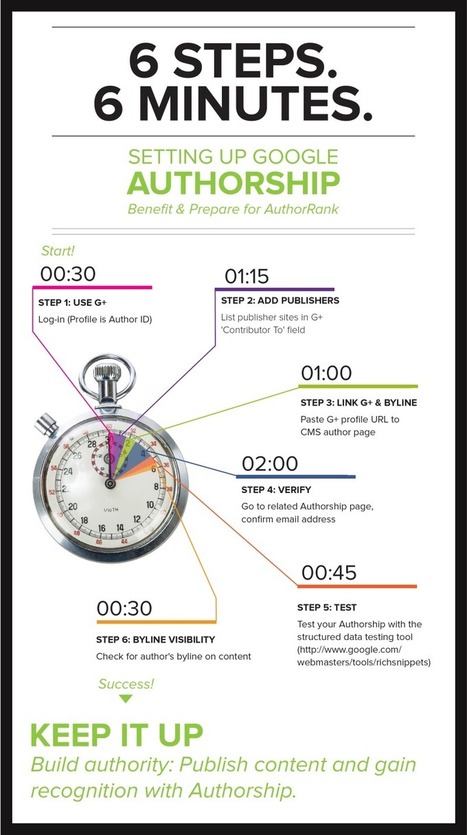



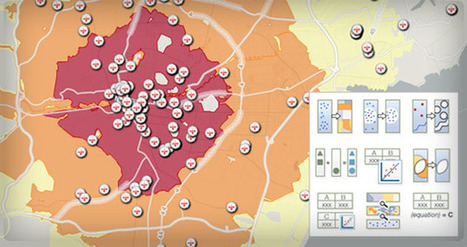
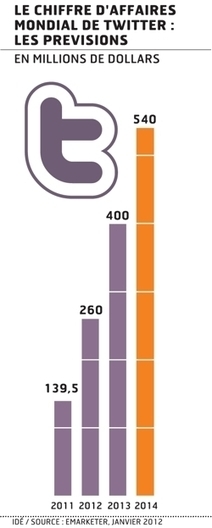

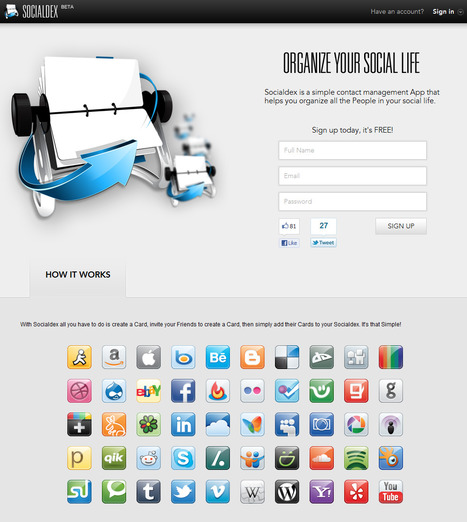
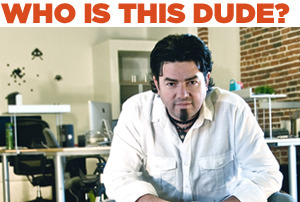

![Is Social Media Making Us Narcissistic? [infographic] | information analyst | Scoop.it](https://img.scoop.it/XIxbjNsnVdCFC44dMevEdTl72eJkfbmt4t8yenImKBVvK0kTmF0xjctABnaLJIm9)

